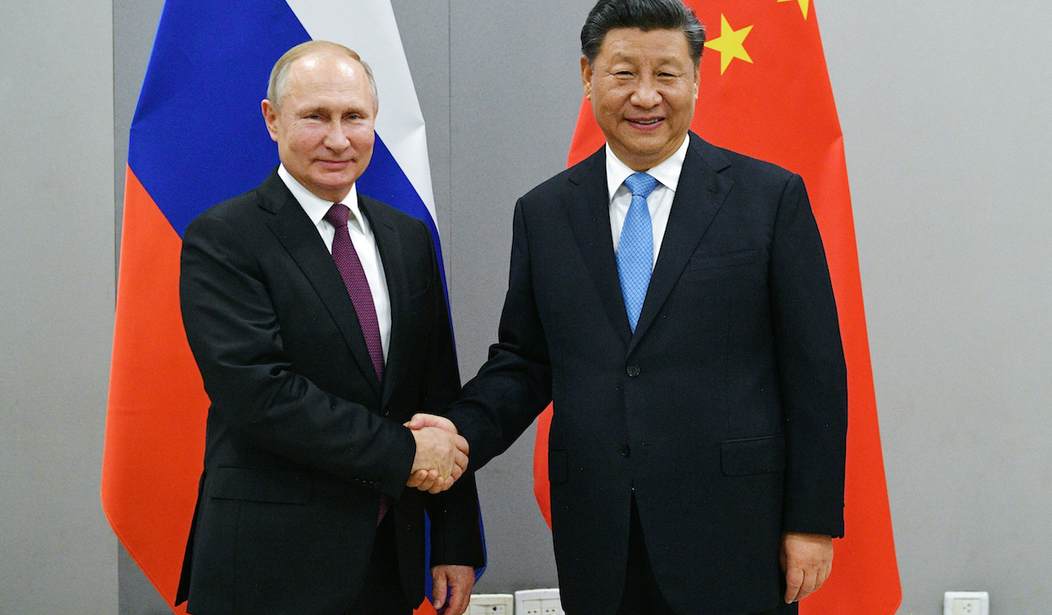We don’t call them “enemies” anymore — far too uncivilized and gauche. Nowadays, Russia and China are “competitors” with the U.S. — sort of like Alabama-Auburn but without the cheerleaders, and don’t forget the nuclear missiles.
On Wednesday, Russian President Vladimir Putin and Chinese President Xi Jinping held a video meeting during which it became clear that the decades-old rivalry between former Communist Russia and current Communist China had warmed considerably.
The significance is not lost on Washington. China is in the process of flexing its muscles on the world stage, trying to achieve superpower status, while Putin’s Russia would like nothing better than to reclaim some of its past glory in Europe. They have gravitated toward each other because they each realize that the other can help them achieve their goals.
“China-Russia relations have emerged from all kinds of tests to demonstrate new vitality,” said the Chinese Foreign Ministry account of the discussion. It added that “Russia will be the most staunch supporter of the Chinese government’s legitimate position on Taiwan-related issues.” In his introductory remarks, Mr. Putin hailed “a new model of cooperation” between the two countries. He will travel to Beijing and meet Mr. Xi in person early next year.
Military cooperation between the two nations has been accelerating in recent months, including naval exercises in the Sea of Japan and fighter planes from both China and Russia maneuvering close to Taiwan.
Related: Biden Leaves Putin Shaking in His Boots — or Probably Not
But the two nations don’t need a military alliance to threaten U.S. interests. By pursuing their own goals on different fronts, they can drain American resources and sap American power.
The military crisis Mr. Putin has generated over Ukraine works to Mr. Xi’s advantage, drawing U.S. focus from the defense of Taiwan. And if China starts a shooting war in Asia, Moscow could calculate that it’s more likely to get away with its own territorial expansion. A war in either region could trigger conflict in the other.
Both powers are also giving Iran crucial support as Tehran fights U.S.-led sanctions against its nuclear program. Mr. Putin’s new defense agreement with India also redounds to China’s benefit by pulling India away from the U.S.
Joe Biden is not the ideal person to confront this new “Axis of Evil” which threatens the international order that the U.S. has successfully maintained for 70 years. This is not to say that the U.S. should go to war over a Russian invasion of Ukraine or a Chinese bid to “reunite” its wayward province Taiwan by force.
But a U.S.-led alliance of world democracies would be a far sight better at maintaining peace than the alternative being offered by Russia or China. And both nations’ leaders should be made aware of that fact in no uncertain terms.










